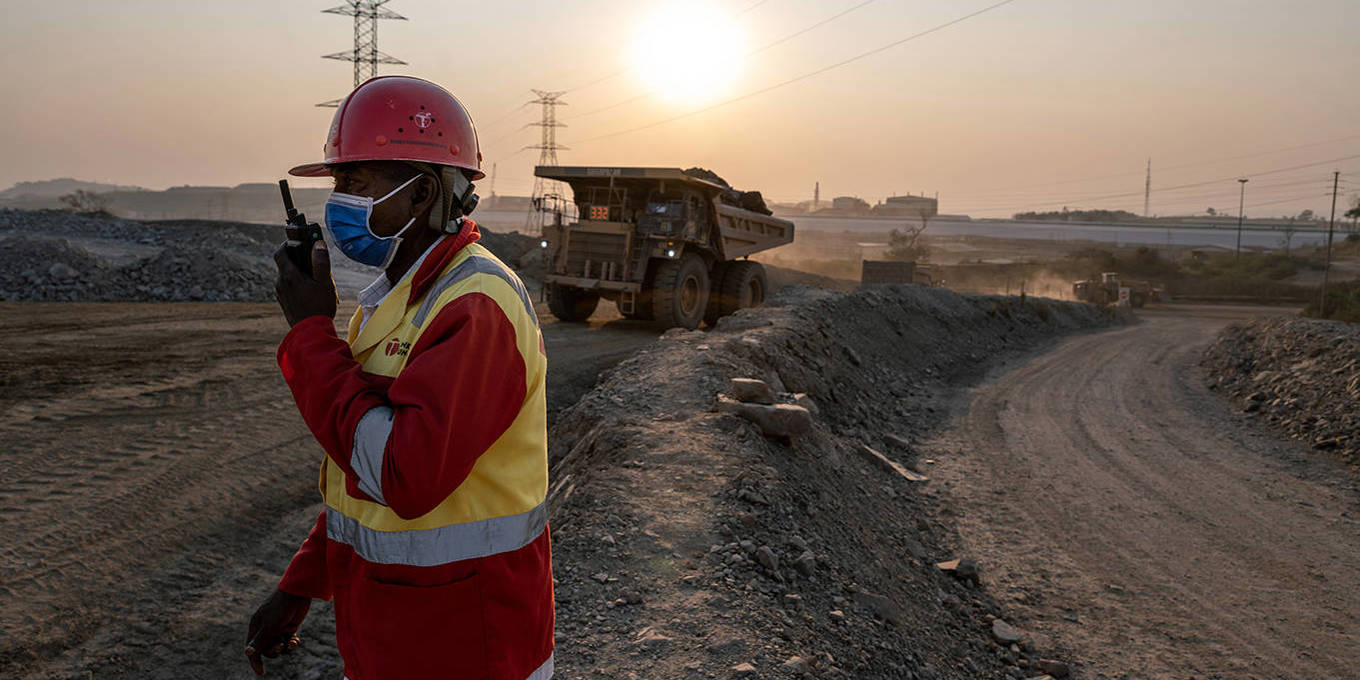
Africa and the US are both seeking to strengthen their manufacturing sectors, but this is not a zero-sum game. By agreeing to strengthen Africa’s industrial capabilities, the US could gain greater access to resources its own industry needs, boost its commercial influence on the continent, and revive mutually beneficial trade.
WASHINGTON, DC – In a recent interview, Fox News anchor Bret Baier asked Félix Tshisekedi, the president of the Democratic Republic of the Congo, how his government would balance continued ties with the United States – including the negotiation of a critical-minerals deal – with its deepening relationship with China. The DRC president responded that China’s influence is not so much “waxing” in Africa as America’s influence is “waning.”
- The Trump Boomerang Effect
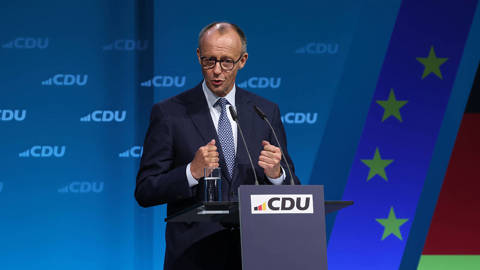 Sean Gallup/Getty Images
Sean Gallup/Getty Images - One Hundred Days of Lawlessness
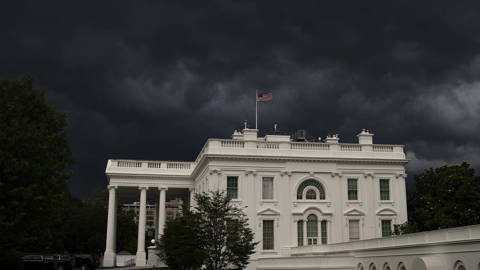 Drew Angerer/Getty Images
Drew Angerer/Getty Images - Europe Needs Its Own AI Infrastructure
 Sameer Al-Doumy/Getty Images
Sameer Al-Doumy/Getty Images
Tshisekedi is right. In 2000, the US was Africa’s largest trading partner; today, China’s total trade with Africa is more than four times larger than that of the US. Two US-Africa Leaders Summits have been held, in 2014 and 2022, and there is no date for a third, though Congress passed legislation late last year that would compel President Donald Trump to convene a summit this year and every two years thereafter.
Meanwhile, China is preparing to convene its tenth summit with African leaders, through the Forum on China-Africa Cooperation, in 2027. A Gallup poll published last year showed that, for the first time, China’s approval rating in Africa (58%) had surpassed that of the US (56%).
Speaking to Baier, Tshisekedi pointed out that the DRC would be “very happy” to see a renewed US commercial presence there. But Trump’s trade policies could have the opposite outcome. And persistent reports that the Trump administration plans to reduce the number of US embassies and consulates in Africa will only add to this decline in influence.
For the last 25 years, the cornerstone of America’s commercial relationship with Africa has been the African Growth and Opportunity Act, a non-reciprocal trade agreement that allows more than 6,000 African products into the US, without duties or quotas. In 2001-22, African AGOA members exported more than $100 billion worth of non-crude goods to the US. The trade was always supposed to be one-way, but that does not mean it did not benefit US companies – such as Levi’s, Gap, and Walmart – and consumers.
The AGOA was designed to help Africa transform its manufacturing base, thereby shifting the basis of its relationship with the US from aid to trade – a goal that one might expect the Trump administration, which has slashed foreign-aid programs, to support. Participation was conditioned on African governments’ promotion of political pluralism, good governance, and economic liberalization. And studies have shown that trade with the US increases value-added production, labor productivity, and labor demand in Africa.
Introducing Project Syndicate’s Forward Thinkers List 
Introducing Project Syndicate’s Forward Thinkers List
Our Forward Thinkers list recognizes and spotlights intellectual innovators poised to shape international debates in the years ahead. It brings together 30 influential individuals from academia, policymaking, civil society, and the private sector — voices challenging conventional wisdom and blazing a new path.
Meet the Forward Thinkers
But, early last month, Trump introduced “reciprocal” tariffs on many African countries, with some of the AGOA’s strongest performers facing the highest rates: Lesotho (50%), Madagascar (47%), and Mauritius (40%). Meanwhile, the 17 African countries that are ineligible for AGOA benefits, mainly due to poor governance, were effectively rewarded with far lower tariffs.
Trump suspended most of these tariffs almost immediately, opening a 90-day window to strike new trade deals. And, to some extent, he is getting what he wanted, with AGOA countries scrambling to salvage their preferential access to the US market. Lesotho, for example, granted Trump ally Elon Musk’s Starlink a ten-year license to operate its satellite network in the country.
Nonetheless, Trump’s tariffs are unlikely to deliver quick wins for the US. Already, African trade ministers have agreed to fast-track policies that will promote trade within the continent, as well as diversify exports in order to reduce their countries’ dependence on particular foreign markets. Add to that the shuttering of the US Agency for International Development and the Millennium Challenge Corporation, the closure of Voice of America, and the lapse of the President’s Emergency Plan for AIDS Relief, and America’s footprint in Africa is shrinking fast.
But there is a way for Africa to leverage the US administration’s interests to the benefit of both sides. Trump’s top priority in Africa is securing access to critical minerals. This makes countries like the DRC – which boasts the world’s richest copper deposits and four of the world’s five largest cobalt mines – as well as Gabon, Zambia, South Africa, and even Chad, strategically important. The US is already in talks over a minerals deal with the DRC and others.
The only problem is that China is far ahead of the US on this front. Chinese state-owned companies and banks control 80% of the DRC’s cobalt production, and 60-90% of the world’s cobalt supply is refined in China, whereas the US produces less than 1% of the world’s cobalt. This imbalance drove former US President Joe Biden’s administration to develop the Lobito Corridor initiative, aimed at expanding the 800-mile rail line that extends from the Angolan port of Lobito on Africa’s Atlantic coast through the mineral-rich DRC to Zambia.
This initiative – for which the Trump administration has signaled its support – will upgrade African infrastructure by establishing partnerships between the US, African governments, African-led financing agencies such as the Africa Finance Corporation, and the European Union. But African countries must do more to ensure that any critical-minerals agreement provides a real boost to their economies, especially by insisting that some value-add production occurs on the continent.
To complement access to Africa’s critical minerals, the US should also commit to processing them and adding value on the continent – for example, making cobalt into battery precursors before export. Since Chinese companies have shown no interest in doing this, such an exchange would position the US as a more valuable partner, thereby ensuring its long-term access to these vital resources. Given that Africa has all the minerals needed for production, spread across more than ten countries in Central and Southern Africa, the development of local processing capabilities would also be consistent with the goals of the African Continental Free Trade Area.
Africa and the US are both seeking to strengthen their manufacturing sectors, but this is not a zero-sum game. On the contrary, by agreeing to help strengthen Africa’s industrial capabilities, the US could gain greater access to resources its own industry needs, reverse the decline of its commercial influence on the continent, and contribute to the revival of wider, mutually beneficial trade. This could lead to more balanced current accounts, just as Trump desires.

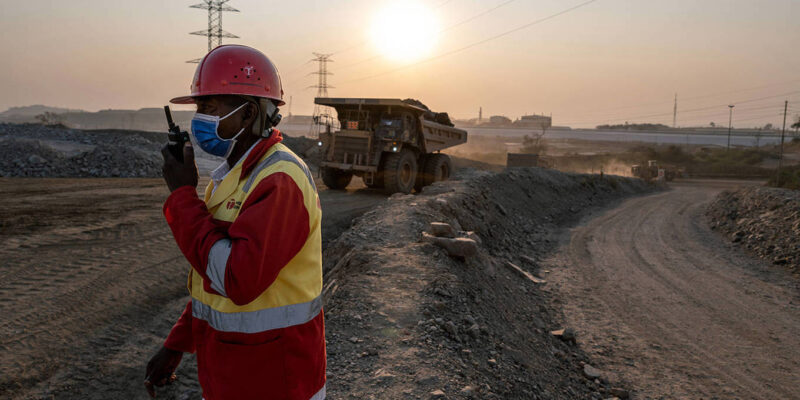
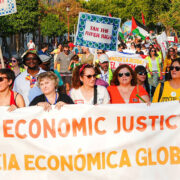
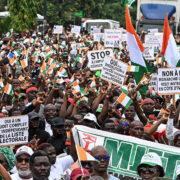
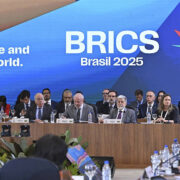

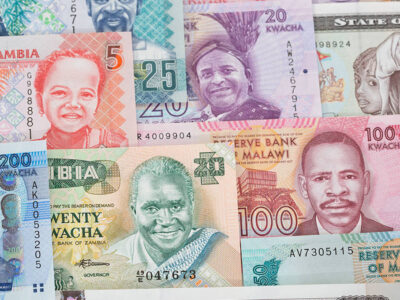
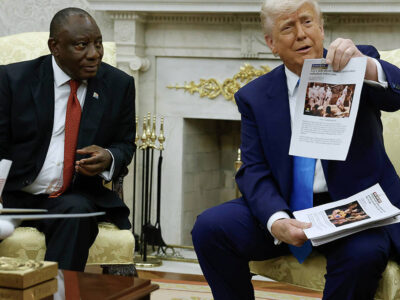
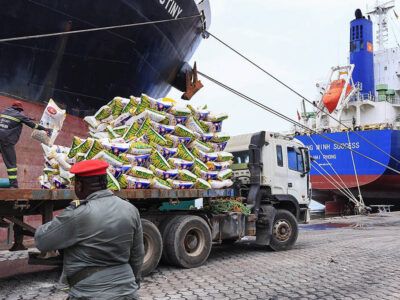
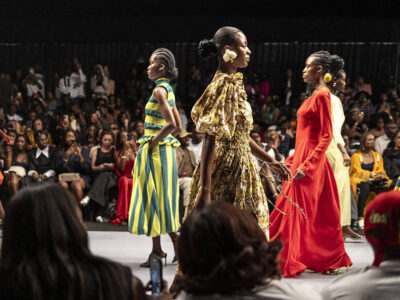

Comments